Months on, council still investigating ethics complaints against independent councillor
Two councillors have lodged complaints with the council against independent Councillor Gavin Pepper. But there’s been no conclusion yet to those processes.
After nearly 50 years, Norman Priestman is retiring and so the shop, formally called The Paint Pot, is closing.

Thomas Butler is near the entrance of The Paint Pot hardware shop, all wide-eyed. “What? You’re closing?”
He’s in his work clothes, paint stains over his shirt and trousers and a faint trace of dark paint on his right cheek.
“Ah, Thomas, you didn’t know?” says Gina Priestman. Gina and her dad, Norman Priestman, step towards Butler.
“We’re gone! I’m retiring!” says Norman, throwing his hands in the air. He touches Butler’s shoulders.
Butler’s mouth is half open. He shifts his gaze from Norman to Gina as if waiting for them to tell him it’s a gag.
“I’ve never seen this man stuck for words,” says Norman, chuckling.
Butler’s eyes well up. He’s been a regular at Norman’s shop for over 20 years, he said, travelling from Clondalkin to buy painting supplies and other bits.
Norman’s got everything.
“Always had everything, and if they didn’t have them, he got it,” said Butler, pointing at Norman.
Norman Priestman, who let his customers curate and redefine his hardware shop by stocking whatever they stumbled in and asked for, is retiring after 49 years, readying to lose himself in the long docket of fun things to do – which includes plenty of travelling – drawn up by his wife, Avril.
“While I’m still mobile, you know, I want to get out and do things,” says Norman, who is 73.
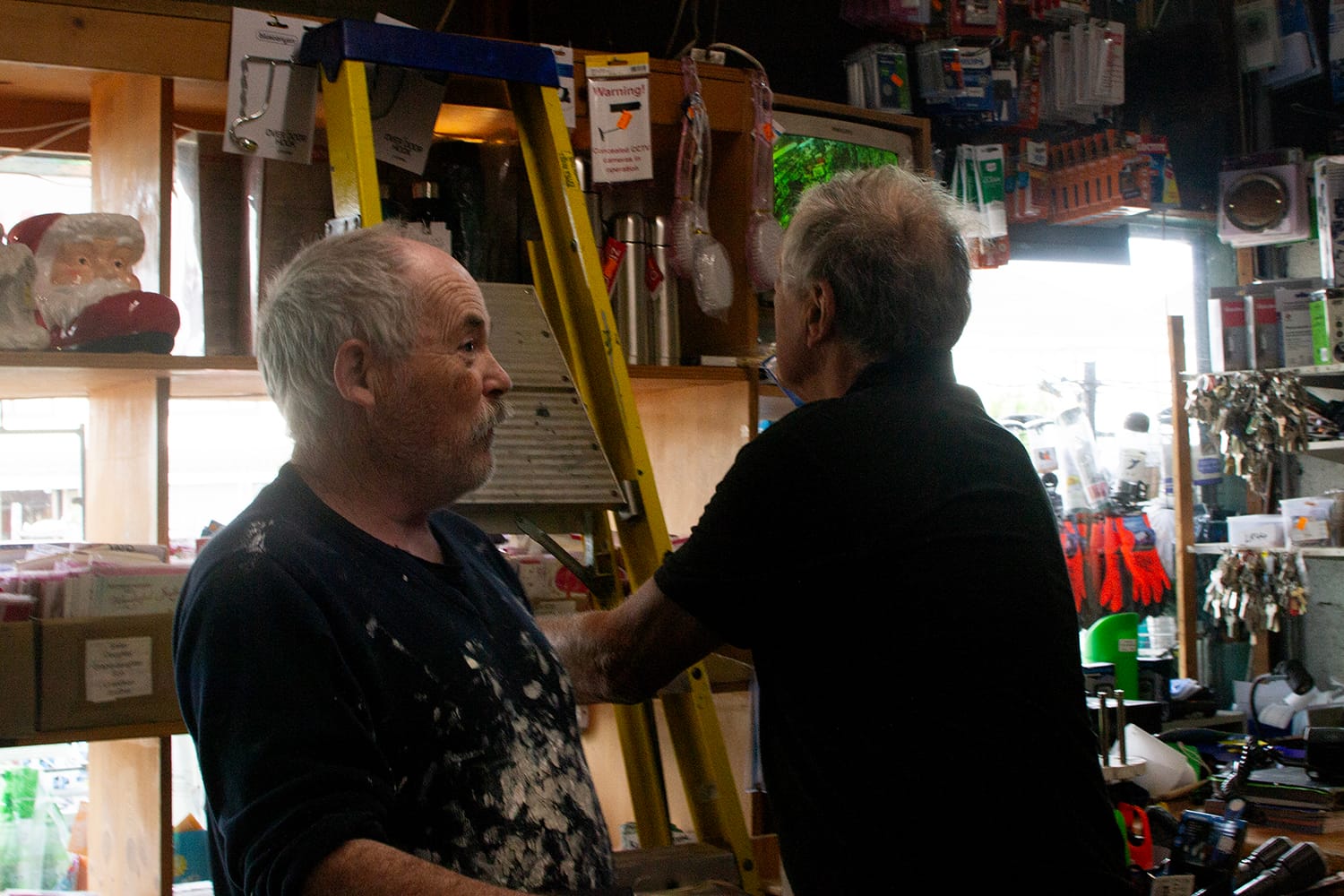
He’s opened his shop on Orwell Park Glen six days a week for nearly half a century, he says. “That’s the downside of retail.”
But for the community in Templeogue and his customers all over Dublin, letting go of Norman is not easy.
“I’d never gotten so much hugs and cuddles in my life,” says Norman, giggling and pacing around in his shop.
“We always came to Norman,” said Bernie Dunne, standing outside Norman’s shop, right after telling him to drop flowers at her house later.
Norman and his wife opened the shop in 1975 with £5,000 borrowed from the bank.
He’d asked for around £3,500, but a banker he knew at AIB decided to give him more, Norman says.
He pulls out a fistful of old photographs. One shows his wife, Avril, a slim young woman with shoulder-length blonde hair and a purple blouse over a turtleneck shirt.
With a faint smile, she stands behind the till next to an old-fashioned cash register.
Behind her, there are pots and pans on the shelves, the kind of stuff Norman still sells. Only now, on the shelves near the till there are also USB cables and hand sanitisers.
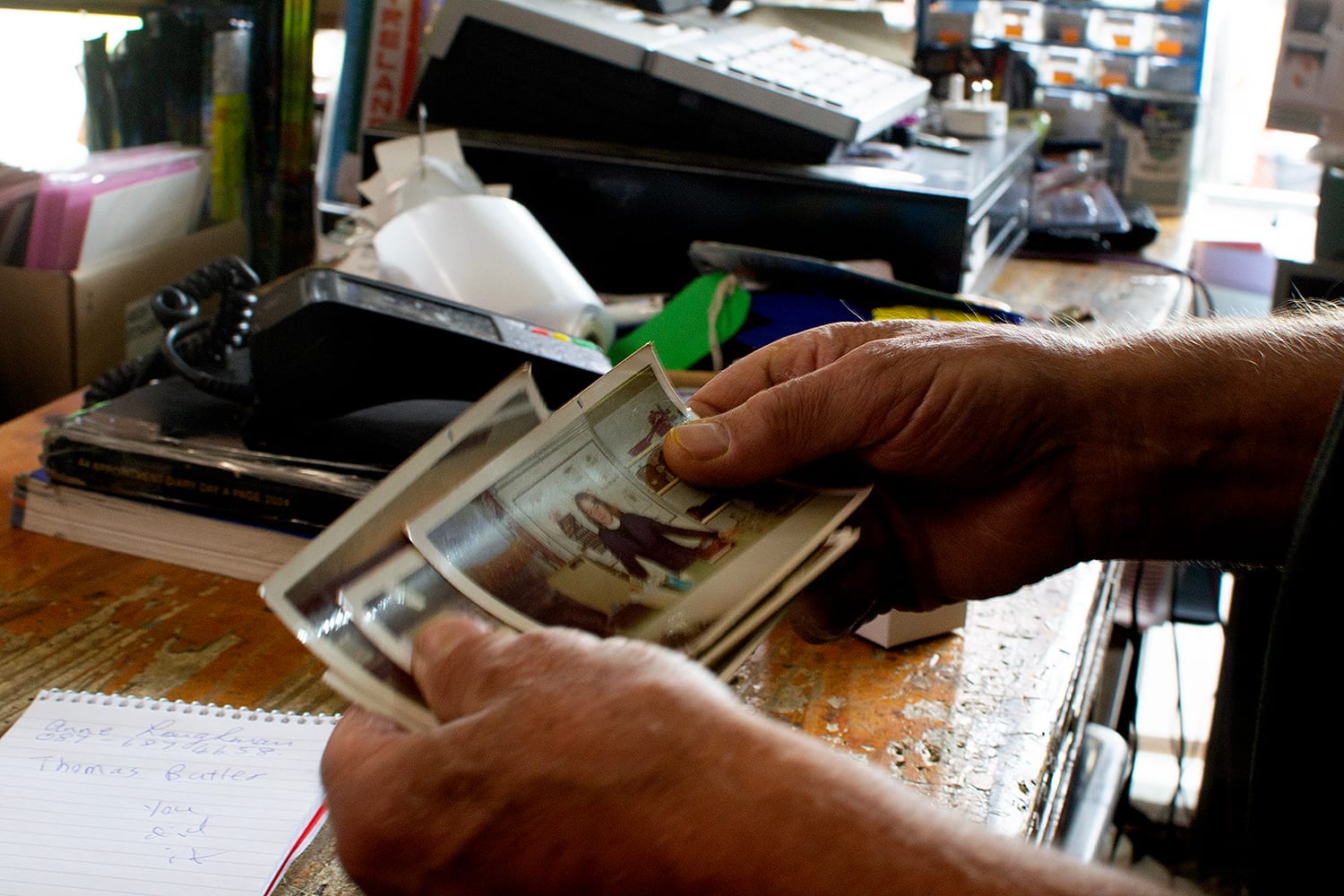
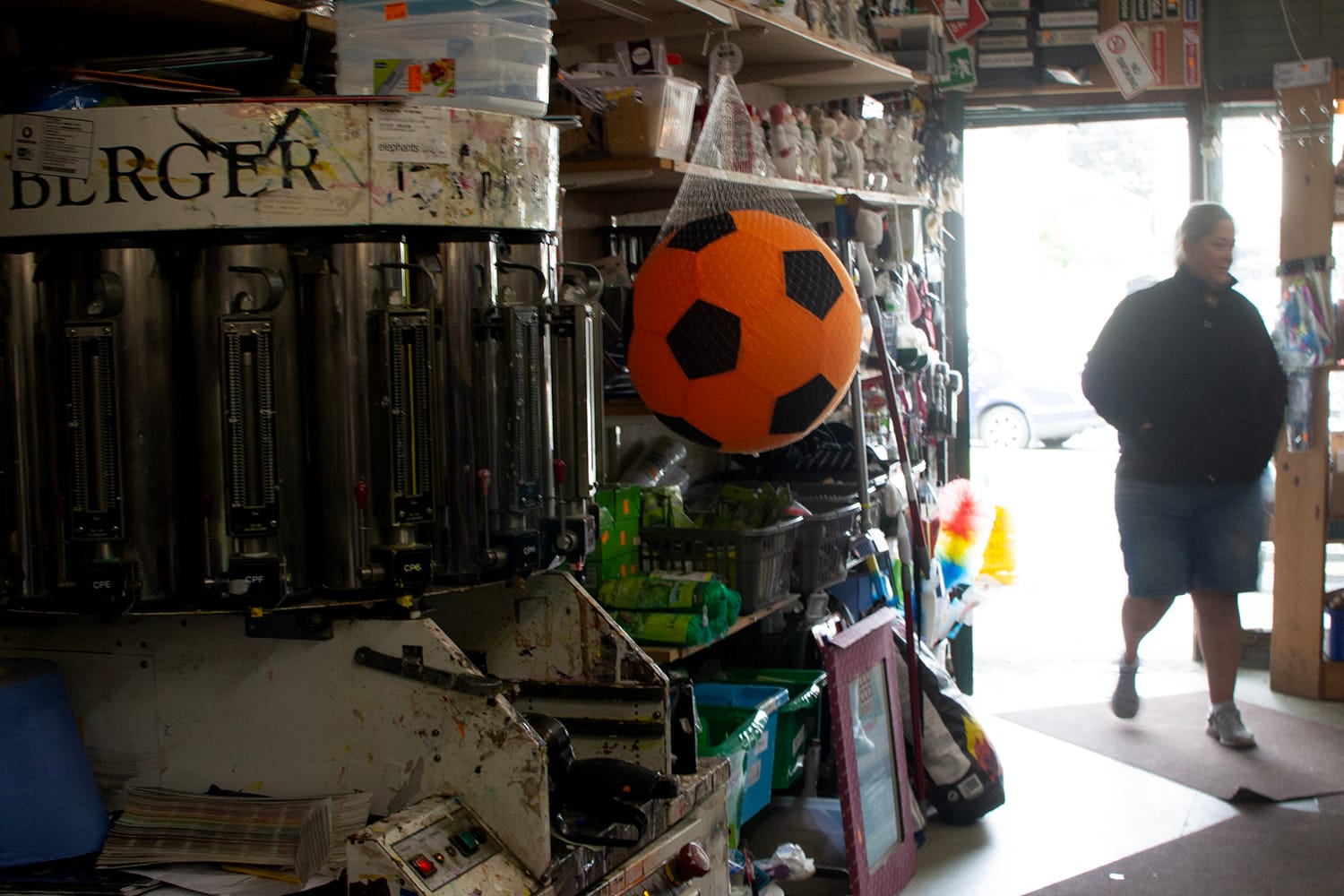
Over the years, they got robbed a bunch and revamped the security. “In the ’80s, people would just drive through the window. We had no shutters or anything,” said Norman.
A sluggish old Philips monitor displays the feed from CCTV in Norman’s shop, showing the store’s entrance from behind a green veil.
Though, Norman says, they barely check it.
When Norman’s shop grew busier and their kids grew up a little, his wife left the business to work elsewhere. “We had enough of working together,” says Norman, chuckling.
In 2007, Gina, Norman’s daughter, was between jobs and decided to help her dad. “I came here for a short run,” said Gina as she bustled around.
She’s been working there for 17 years.
On a recent Thursday morning, Gina and her dad were always on their feet.
During the pandemic lockdowns, they stayed open and served the community. Business boomed.
People stood in massive queues outside their shop, says Gina. “And the Gardaí helped us set up a queuing system.”
Guards would tell them about older people in the neighbourhood, and they’d drop off stuff at their homes, said Gina.
“And quite often they would say, ‘But I need a newspaper as well.’” So, she’d run to a newsagent to get that, too.
It was wholesome but awful, too, because of the pandemic, they say.
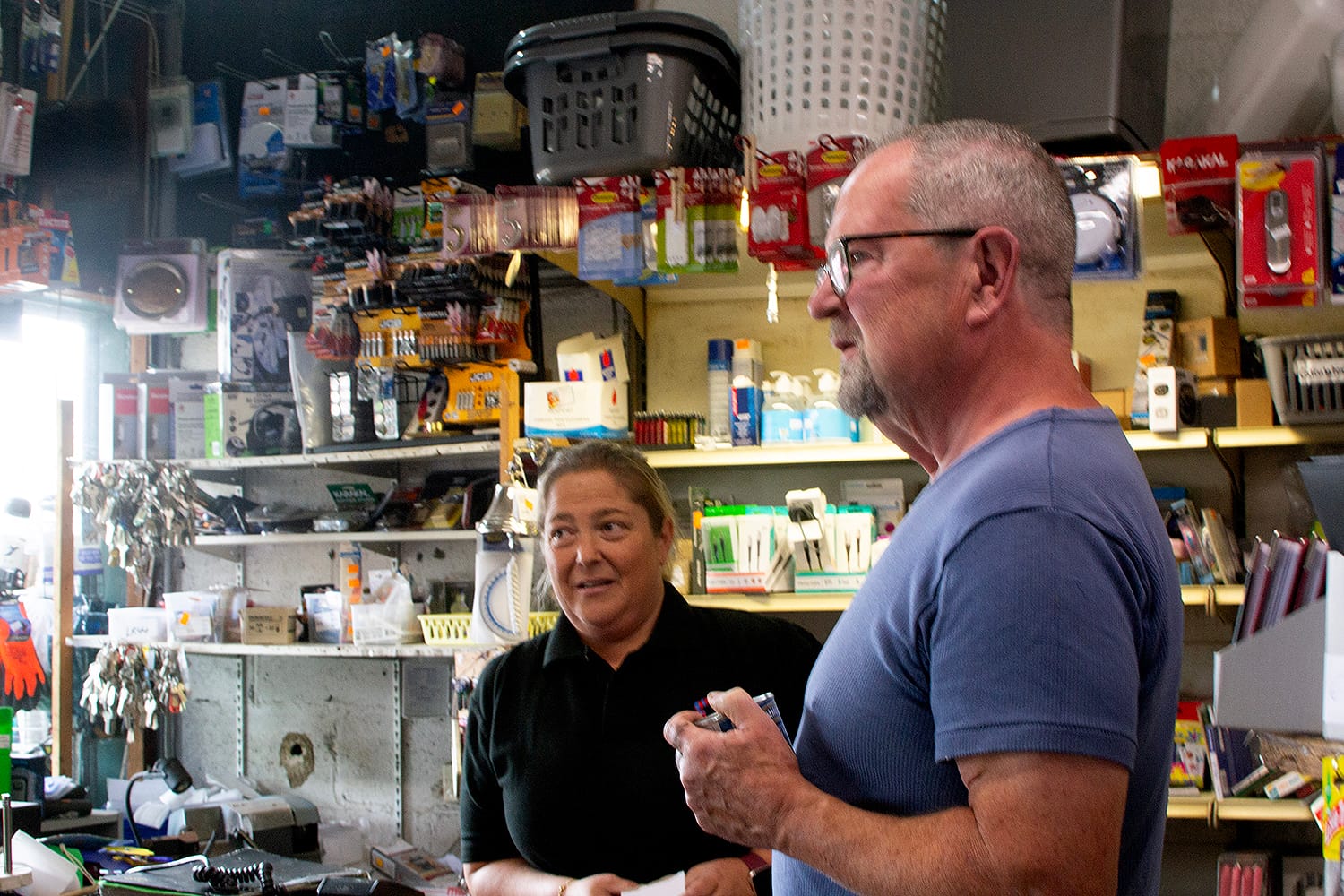
That local retail businesses did well in suburban areas in the early pandemic is outlined in an October 2022 report on retail, co-written by KPMG and commissioned by the Department of Enterprise and Employment.
The paper also recognises the importance of this kind of business. The government should formulate a strategy “to ensure the longevity of traditional family-owned retail businesses”, it says.
Gina says she doesn’t want to take over Norman’s shop though. First and foremost because it won’t be the same without her dad, she says.
But she also wants to give him a fair shot at retirement. “If I stayed here, Dad is the type of person who would never really go,” says Gina as Norman watches her with a broad smile.
“I think the best thing is that we go together and enjoy our new lives,” she says.
In a video of her dad that Gina posted on the shop’s Facebook page, Norman says they’re hoping that whoever takes over their shop “ensures that there is a hardware presence in Templeogue”.
Norman’s is at the end of a block of shops on Orwell Park Glen, right next to a SuperValu.
At the bottom of an old sign for a GP surgery, it says: “THE PAINT POT. MORE THAN JUST A HARDWARE STORE” and a red arrow points left.
Most people know the shop as Norman’s, though.
So a lot of people got it wrong at a pub quiz when they wrote down the answer to the name of the local hardware store as Norman’s, says Norman, chuckling.
On a recent Thursday morning, outside Norman’s shop on a big wooden picnic table, there were stretchy toys, little balls and tiny dinosaurs that Norman sells for €2 so that kids can afford them, he said.
Generation after generation, kids have come with their pocket money, says Norman.
A little girl picked up a green stretchy lizard and pulled its claws.
Norman’s got toys for cats and dogs, too. They’re inside, hung next to the shop’s entrance.
They sell all kinds of greeting cards for €1. Gina brings a card celebrating a divorce. “We’re moving with the time,” she says, laughing.
They have had some weird requests over the years, too. People come in and stumble over their words, being all like, “I’m sure you don’t have this …,” said Gina. “And we always say there are no silly questions.”
A guy once asked Norman if he sold bullets. That’s the weirdest he’d heard, he said.
For Gina, it was when someone asked for vibrator batteries, she says, blushing.
Norman says that’s not weird. They laugh.
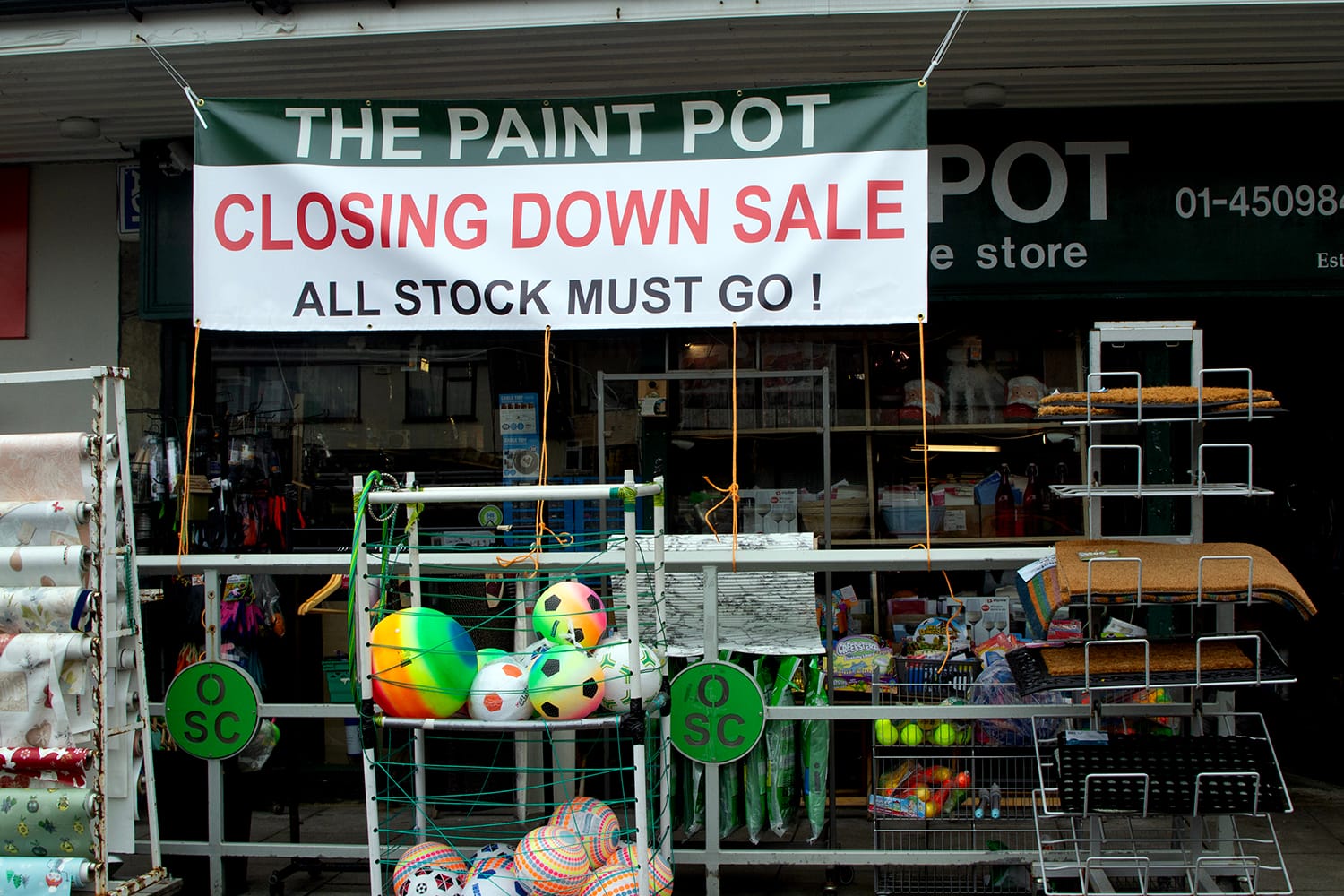
Anne Loughman cries when talking about Norman’s closing. She and her family have been customers for 47 years, she said.
Her husband used to be a teacher in a north inner-city primary school that served disadvantaged kids, said Loughman.
He bought all kinds of things for the school from Norman, she says. “And Norman not only would’ve served him, he’d make the deliveries himself.”
Stuck for a tricolour for a school event? Norman had it, she said.
Now their little grandson Aidan loves visiting Norman’s, though he won’t get to grow up with the shop. “It’s like a treasure trove for the children,” says Loughman.
For years, they’ve been telling Norman to take it easy but now that he’s listened, she said, they can’t bear to lose him. “I can’t begin to tell you how amazing this place is,” she said, crying.
Norman hugs her.
On the Thursday before the leaving cert results came out, a woman came looking for balloons to celebrate with her kids.
“Oh, is it tomorrow?” asks Norman. “Yes, it is,” says the woman firmly.
She bought a few colourful balloons that together formed a short sentence: “You” “Did” “It”.